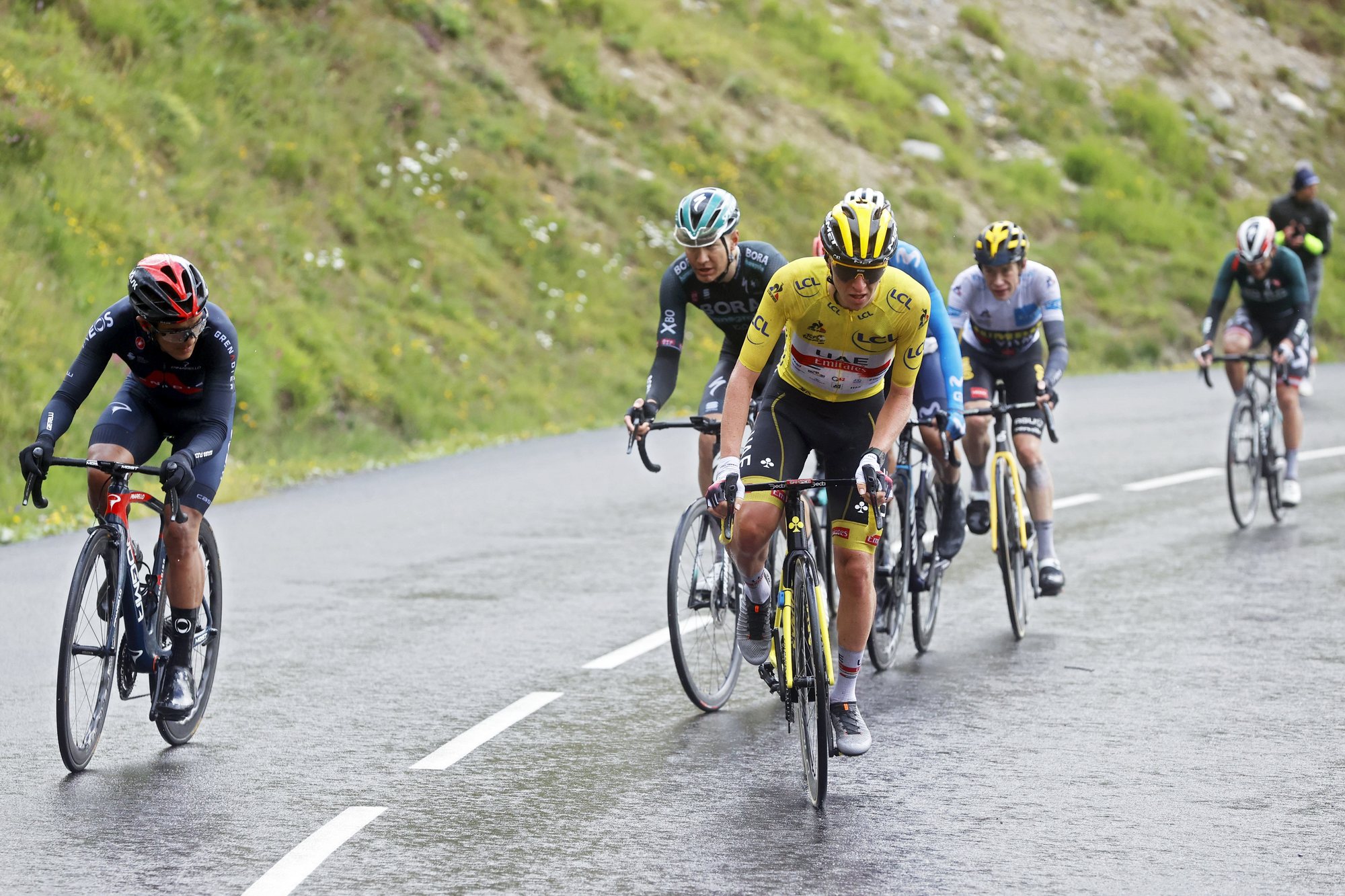Pogacar attacks in Tignes to keep O'Connor out of Tour de France yellow jersey
Slovenian considers second-placed Australian a new GC threat

When Tour de France leader Tadej Pogačar (UAE Team Emirates) put in a late attack on stage 9 at Tignes, he ensured that stage winner Ben O'Connor (AG2R Citroen) did not take the yellow jersey but it was yet another reminder of his crushing superiority as well.
Previously more than eight minutes back, O'Connor roared up the general classification on Sunday as his long-range move for the stage win saw the Australian briefly become race leader on the road.
Pogačar was only prepared to let the Australian get so close, though. First, he put his teammates to work at the foot of the climb. Then the Slovenian made the most of an acceleration by Ineos-Grenadiers that culminated in a brave but fruitless attack by Richard Carapaz, to shoot off the front himself.
By soloing to sixth at 6:02 behind O'Connor, Pogačar has both protected yellow and also simultaneously cowed his pre-race GC rivals a little further by adding a further 32 seconds to his already massive GC advantage. All in all then, a good day's work at the Tour de France office for the 22-year-old race leader.
There was one interesting twist to the GC battle, though. O'Connor has now moved up to second overall, just over two minutes back. And for all O'Connor has logically expressed considerable doubts about taking on Pogačar in person, Pogačar said later he was taking no chances with the Australian.
"Hats off to O'Connor he was really strong and almost took yellow off me," Pogačar explained after the finish. "I was a little bit scared of that. It wouldn't have been the worst thing to lose it but I kind of like the colour."
"I want to keep it for as long as possible. So I made a small attack and I closed a little gap. All in all, I'm in a good place."
Get The Leadout Newsletter
The latest race content, interviews, features, reviews and expert buying guides, direct to your inbox!
Pogačar then confirmed that O'Connor is now another enemy in a GC game in which every other rider is over five minutes in arrears.
"He's riding really well. Today he made a huge effort so I don't know what that cost him in such demanding weather. I think potentially he's a good GC rider. He is super strong, super young. For sure he is in contention."
As for what he made of Ineos-Grenadiers tactics on the final climb, Pogačar gave credit to his rivals for "trying to make the race."
"It was a hard day and super-demanding. Maybe we weren't turning out very high Watts but you get those hard legs at the end. They tried and I respect that. But I gave my best to counter-attack. I was also worried that if I didn't maybe others would go for it, too."
The absence of teammates supporting Pogačar in the little group of a dozen favourites just before the finish sparked the umpteenth question about the strength of his squad for the Tour. But Pogačar stoutly defended his team's collective performance and argued that they had done a solid job protecting his interests on what was the third extremely tough stage in a row.
"I don't understand why everybody keeps saying the UAE team is bad and that we don't have things under control," he countered. "We are one of the strongest teams in the race and I am in the leader's jersey. For now, we are one of the best Tour teams, for sure."
Pogačar was asked at the end of the press conference if he understood why there could be possible doubts about his performance.
However, a somewhat patchy video connection between the press room and the conference vehicle did not appear to allow him to hear the question correctly, and he answered that his condition was good and while Saturday was one of the best days of his career, Sunday was more one of survival.
As for Monday and the rest day, Pogačar had two very simple objectives. "I really hope the weather will be better," he said, "and I can finally catch up on some sleep." And after the ultra-hard first nine days of racing in this year's Tour de France, most other riders in the peloton surely felt the same way.
Alasdair Fotheringham has been reporting on cycling since 1991. He has covered every Tour de France since 1992 bar one, as well as numerous other bike races of all shapes and sizes, ranging from the Olympic Games in 2008 to the now sadly defunct Subida a Urkiola hill climb in Spain. As well as working for Cyclingnews, he has also written for The Independent, The Guardian, ProCycling, The Express and Reuters.
